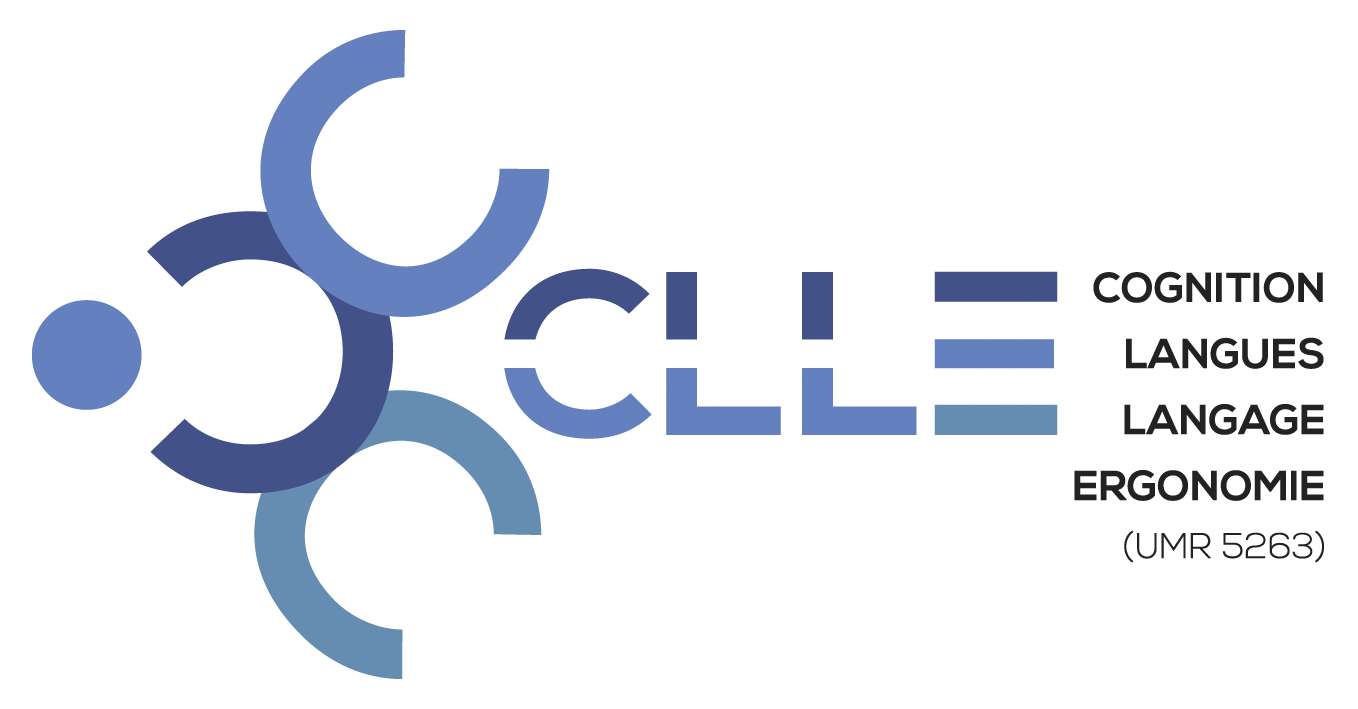-
Partager cette page
Thèse Nataly JAHCHAN
15 février 2019 à 14 h, salle D31, Maison de la Recherche, UT2J
Titre
To What Extent Does Text Simplification Improve Human Comprehension?
Cognitive Evaluations for the Optimization of the Airbus Cockpit Controlled Language for Future Aircraft
Jury
Christopher Gledhill, Professeur des Universités, Université Paris Diderot, rapporteur
Mathieu Valette, Professeur des Universités, INALCO, rapporteur
Stéphanie Caillies, Professeure des Universités, Université Reims Champagne-Ardenne, examinatrice
André Tricot, Professeur des Universités, ESPE, Université Toulouse Jean Jaurès, examinateur
Emmanuelle Cannesson, Responsable Technique AIRBUS, invitée
Anne Condamines, Directrice de Recherche, CNRS (Directrice de thèse)
Hélène Giraudo, Chargée de Recherche HDR, CNRS(Co-Directrice de thèse)
Résumé
This PhD was initiated by the Human Factors and Ergonomics in Design department at Airbus with the aim of optimizing an existing cockpit controlled language to integrate in future disruptive design. The need for clear and unambiguous communication is vital in safety critical domains, and the current controlled language was carefully constructed to avoid ambiguity and complexity, and is designed to help pilots operate and navigate the aircraft (with the help of cockpit screen interfaces) in normal and abnormal (in cases of emergency or failures) situations. In order to optimize the existing language, we set out to assess the appropriate levels of simplification that would achieve more accurate and faster comprehension with minimum pilot training. We first delved into the controlled language domain to form an overview of the existing controlled languages, their context, and rules. From this research we attempted to find solutions for optimization, but at the same time we strove to offer an original contribution to the field through this work.
In order to test and improve comprehension, perception, and use of controlled languages in the cockpits (and to offer new assessment techniques for evaluating other controlled languages), we conducted evaluations by taking advantage of new tools and research in the cognitive sciences and controlled languages domains to apply linguistic hypotheses concerning text simplification limits. More particularly: might a more natural syntax help pave the way for better pilot comprehension and faster reaction times? Results show that the Airbus controlled language could benefit from more natural language structures to enhance pilot comprehension and reduce training times. This new more optimized language fits effectively into the future disruptive cockpit concept and its more intuitive designs. We also show that there is a noticeable lack of controlled language evaluations in the field, as well as adequate methods of evaluating linguistic hypotheses using firm cognitive sciences methodology to satisfy ergonomic needs. We propose that in the future, all controlled language rules be systematically evaluated before being applied, especially in safety critical domains, to ensure that the prescriptive and proscriptive rules that make them are as efficient as possible, and that they truly reduce ambiguity and improve human comprehension and performance.
Titre
To What Extent Does Text Simplification Improve Human Comprehension?
Cognitive Evaluations for the Optimization of the Airbus Cockpit Controlled Language for Future Aircraft
Jury
Christopher Gledhill, Professeur des Universités, Université Paris Diderot, rapporteur
Mathieu Valette, Professeur des Universités, INALCO, rapporteur
Stéphanie Caillies, Professeure des Universités, Université Reims Champagne-Ardenne, examinatrice
André Tricot, Professeur des Universités, ESPE, Université Toulouse Jean Jaurès, examinateur
Emmanuelle Cannesson, Responsable Technique AIRBUS, invitée
Anne Condamines, Directrice de Recherche, CNRS (Directrice de thèse)
Hélène Giraudo, Chargée de Recherche HDR, CNRS(Co-Directrice de thèse)
Résumé
This PhD was initiated by the Human Factors and Ergonomics in Design department at Airbus with the aim of optimizing an existing cockpit controlled language to integrate in future disruptive design. The need for clear and unambiguous communication is vital in safety critical domains, and the current controlled language was carefully constructed to avoid ambiguity and complexity, and is designed to help pilots operate and navigate the aircraft (with the help of cockpit screen interfaces) in normal and abnormal (in cases of emergency or failures) situations. In order to optimize the existing language, we set out to assess the appropriate levels of simplification that would achieve more accurate and faster comprehension with minimum pilot training. We first delved into the controlled language domain to form an overview of the existing controlled languages, their context, and rules. From this research we attempted to find solutions for optimization, but at the same time we strove to offer an original contribution to the field through this work.
In order to test and improve comprehension, perception, and use of controlled languages in the cockpits (and to offer new assessment techniques for evaluating other controlled languages), we conducted evaluations by taking advantage of new tools and research in the cognitive sciences and controlled languages domains to apply linguistic hypotheses concerning text simplification limits. More particularly: might a more natural syntax help pave the way for better pilot comprehension and faster reaction times? Results show that the Airbus controlled language could benefit from more natural language structures to enhance pilot comprehension and reduce training times. This new more optimized language fits effectively into the future disruptive cockpit concept and its more intuitive designs. We also show that there is a noticeable lack of controlled language evaluations in the field, as well as adequate methods of evaluating linguistic hypotheses using firm cognitive sciences methodology to satisfy ergonomic needs. We propose that in the future, all controlled language rules be systematically evaluated before being applied, especially in safety critical domains, to ensure that the prescriptive and proscriptive rules that make them are as efficient as possible, and that they truly reduce ambiguity and improve human comprehension and performance.





